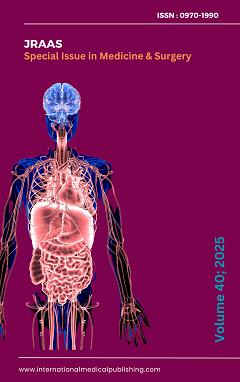5a-dihydrotestosterone (DHT) inhibits Tumor Necrosis Factor - alpha (TNF-a) inducedJanus Kinase-1 (JNK-1) activation and apoptosis in breast cancer in p21 dependent manner
Abstract
Beside established primary reproductive functions, the male hormone androgen act as a growth and
survival factor for most of its target tissues. Though male androgenic hormones are widely studied,
still some aspects of underlying mechanisms are not completely clear. In addition to their influence
on female reproductive hormones which are considered to be crucial factor in breast carcinogenesis,
several reports shows that male androgenic hormones may have direct influences on breast cancer
tissues. Here, we have used dihydrosterone as model of male androgen to understand its impact on
some major molecular circuitry and their by in the process of breast carcinogenesis. We observed
that DHT convincingly inhibits tumor necrosis factor-alpha (TNF-α) induced Janus Kinase-1 (JNK-
1) activation and apoptosis in breast cancer cells, MCF-7 in p21 dependent manner. Inhibition by
androgen requires the transcription activity of androgen receptor (AR) and de novo protein synthesis.
AndrogenAR induces expression of p21 that in turn inhibits tumor necrosis factor-α induced JNK
activation and apoptosis. Our results reveal a novel cross-talk between AR and JNK in breast cancer
(MCF-7) cells, thereby providing a molecular mechanism underlying the survival function of
androgen on its target tissues or organ.


